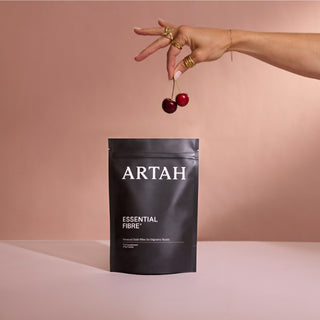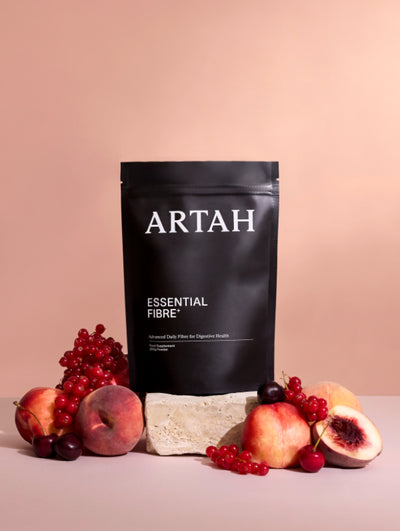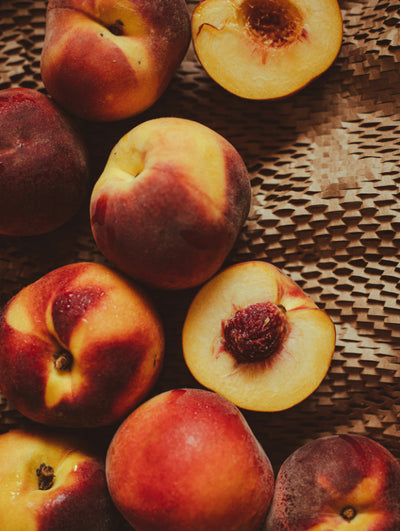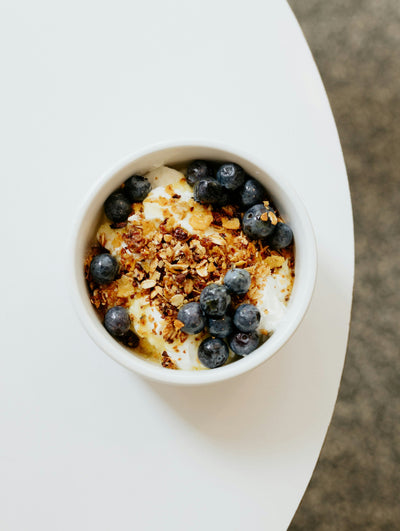In the world of health and wellness, we're often told that we should focus on what to add in, not take away, to get to our health goals. I often give the same advice because there is something empowering about this approach; it feels more positive, more proactive, and more achievable than having a long list of what to avoid. But what if I told you there are some core - and very common - bad habits that may be acting as barriers to your success? And that by removing these habits, you can often take big leaps towards more energy, better productivity and a heightened sense of emotional wellbeing? This week I’m sharing six bad habits to stop for better health and happiness. Some are easy fixes, and some take more time, but all of them will be impactful.
Sugary food (and drinks) first thing in the morning
When we wake, our insulin sensitivity and responsiveness is heightened, and we’re also in a fasted state, which means that what we put into our body really matters. Starting the day with a hit of sugar – whether it be from food or drink - can put you on a blood sugar roller coaster that can last the entire day; think irritability, energy crashes, cravings, and that hangry feeling. Regardless of what time you choose to eat your first meal, it’s important to start the day with balance; think fibre, protein, and fat, alongside your carbohydrate of choice (if needed) to keep you satiated and energised until your next meal. Some simple but impactful swaps include saving your oat, skimmed, or vanilla latte until after breakfast (I often see people start the day with a hit of caffeine and sugar before even hydrating, with hours before their first meal), and choosing jumbo oats over instant (and even better, adding nuts and seeds). To really feel the power of food, try hitting at least 20g of protein for breakfast and see if you can notice the difference.
Procrastinating on your nutrition goals.
- I’ll start again Monday.....
- I just ate xx, so I’ve ruined it....
- I’ll start in the New Year.....
- I’ll focus on it when I feel better....
- I’m too busy right now......
These are the common lines we all say at some time or another, including me! And whilst every now and then there are genuine and reasonable reasons for putting something off, if you find yourself using them all year round (and not moving any closer to your health and wellness goals), it may be time to hone in on the root cause of the avoidance. Procrastination can stem from a variety of factors; we can be worried that something will be too difficult, be afraid of failing, have set rules that are too extreme to follow, or quite simply just be overwhelmed. Whatever the cause, procrastination can erode our emotional wellbeing and confidence, and keep us stuck in a cycle of both physical and emotional stress. Nutrition is always happening to us; we cannot avoid food, nor the impact it has on us, so understanding that cultivating healthy, long-term habits is essential for our mood and energy is the first step. The second step is trying to identify some of the reasons for the procrastination and breaking things down into smaller, more achievable steps. As an example, if you’ve set a goal to get to 60g of protein in a day, and you’re finding it so difficult that it makes you give up, just start with breakfast. Or maybe you want to cut out sugar entirely, but this is such a stretch from where you are now that it's completely overwhelming. In this case, you could start with one or two items that you know are more straightforward to omit and easier to replace. Whatever your first steps, work on getting comfortable and confident in what you’re doing, and then once you’ve done that, you can add something else in. You don’t need to be perfect all at once (or ever, for that matter).
Overtraining + under-eating.
Add in chronic stress, and this is what I call the trifecta of burnout. Many of us still have a hangover from the days of low fat, low calorie everything. But whilst consistently overeating on calories can cause issues, chronically under-eating can be just as concerning. Prolonged calorie restriction has been proven repeatedly to be not only ineffective for weight management, but also potentially detrimental to health. (1) It’s unfortunate that this ethos has been engrained in many of us, but I promise you – if you’re training regularly, you need the right fuel to see the results you crave, and to feel well in general. Start off by doing a quick audit of your protein and fibre intake. A good target is 1.2g of protein per kg of bodyweight per day from a variety of sources. When it comes to fibre, the RDA is 30g per day, but most of us are only getting 18g. Whilst fibre won’t necessarily contribute to your net calorie intake, you’ll automatically need to eat more to achieve this target, and as an added benefit, it will be great for gut health, satiety, and overall metabolic balance. If you notice that your gut gets uncomfortable as you increase fibre, go a little more slowly and consider adding GI Cleanse to help support microbial balance and combat the effects of more troublesome microbes.
Breaking an IF with a salad
I’m a big proponent of healthy fasting, but there’s one thing I consistently see – especially in women – that can turn IF from being a tool that is helpful to a tool that is hindering, and it’s breaking your fast with a low protein, low calorie salad. Extending our eating window isn't about caloric restriction, but rather, allowing our gut and cells to clean up and repair. Whilst reducing calories periodically is fine, if this is your daily habit, you'll likely be hindering your energy and success. Instead, try having something more substantial, with a good amount of protein; think 25-35g, depending on your bodyweight. Pair this with healthy fat and lots of fibre to make sure you can reap the benefits of your effort but stay metabolically stable until dinner.
Eating whilst distracted.
Being glued to the tv, computer, or your iPhone whilst during mealtimes can be a killer when it comes to mindless eating. The data on this is robust – when we are distracted by electronics, we chew less, eat more, and experience a reduction in satiety signals. For example, one study showed that eating in front of the tv results in and extra 230kcal consumed and delaying normal mealtime satiation. (2) If you’re an IBS sufferer this can have a compounding effect; the combination of poor chewing and overeating increases the risk of IBS symptoms significantly. (3) Try to focus on a tech free meal so that you can eat slowly and purposefully. If you feel that you need to eat whilst working, then you can still try to improve the experience my chewing more and taking a few breaths before you start to reduce stress and get your body ready for the task of digestion.
Having false attachments to foods that don’t suit you.
This is a big one, and perhaps an unpopular opinion, but having false attachments to food is one of the most sabotaging habits I see. What are they? They are unhealthy, emotional attachments to foods that do not benefit you in any way. Usually, these attachments manifest in foods that are detrimental to our health and make us feel bad when we eat them. You may identify these foods as your ‘downfall’ or ‘comfort’ and feel that giving them up comes with an emotional cost. They also tend to make it difficult for you to be consistent with your efforts to feel well within yourself. Whilst these attachments may seem comforting on a surface level, they tend to drain your energy and almost always send you backwards in terms of health. To fully let go of these attachments, it’s important to first acknowledge what they are and the impact they have on your wellbeing. For example, a lot of people go for a ‘cheat meal’ - and this meal is so over the top that they’re left feeling bloated, guilty, and uncomfortable for days. If you’re finding it difficult to break these attachments, then don’t be hard on yourself – it takes time. Try finding a substitute as a first step; this is the perfect example of how focusing on what to add into your regime can be so powerful. For example, find a great recipe that still feels indulgent and satisfying that uses healthier ingredients that don’t impact you in such a negative way. If you’re having a hard time breaking some of your attachments because of cravings, overwhelm, or general low energy, try adding supplemental support:
- Metabolic Fix, to combat cravings and support energy.
- Enhanced NAD+ Complex, to improve energy, focus, and support the metabolism.
- Enhanced Nootropics, to combat fatigue, support emotional balance and provide a calming dose of magnesium.

Disclaimer: The information is presented in this article is for educational purposes only and is not intended to diagnose, prevent, or treat any medical or psychological conditions. The information is not intended as medical advice, nor should it replace the advice from a doctor or qualified healthcare professional. Please do not stop, adjust, or modify your dose of any prescribed medications without the direct supervision of your healthcare practitioner.
References:
- Redman, L. M., Heilbronn, L. K., Martin, C. K., De Jonge, L., Williamson, D. A., Delany, J. P., ... & Pennington CALERIE Team. (2009). Metabolic and behavioral compensations in response to caloric restriction: implications for the maintenance of weight loss. PloS one, 4(2), e4377
- Bellissimo, N., Pencharz, P., Thomas, S. et al.Effect of Television Viewing at Mealtime on Food Intake After a Glucose Preload in Boys. Pediatr Res61, 745–749 (2007).
- Jia W, Liang H, Wang L, Sun M, Xie X, Gao J, Li L, Tang X, Ma Y. Associations between Abnormal Eating Styles and Irritable Bowel Syndrome: A Cross-Sectional Study among Medical School Students. Nutrients. 2022 Jul 9;14(14):2828. doi: 10.3390/nu14142828. PMID: 35889787; PMCID: PMC9319336.


















































